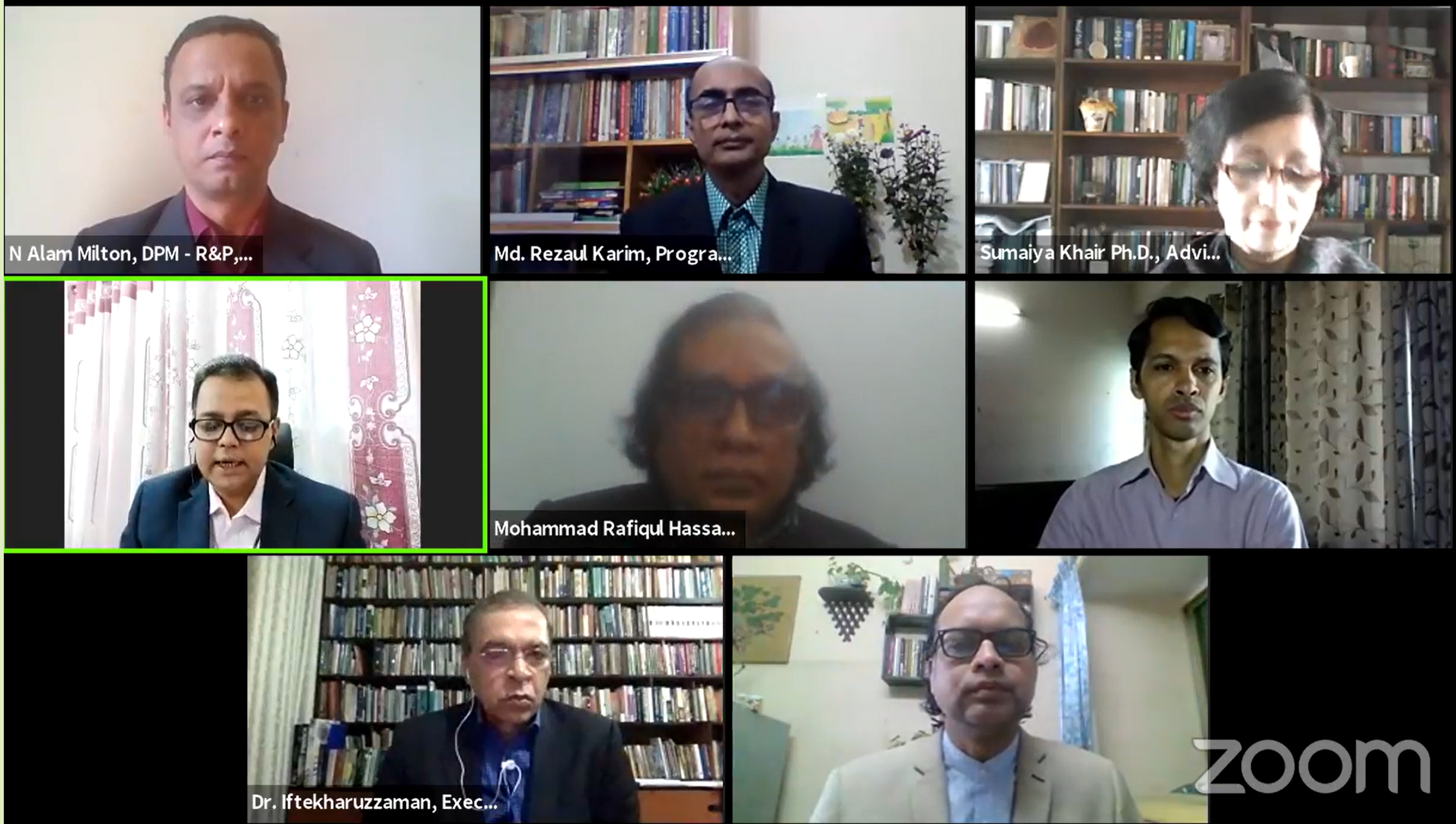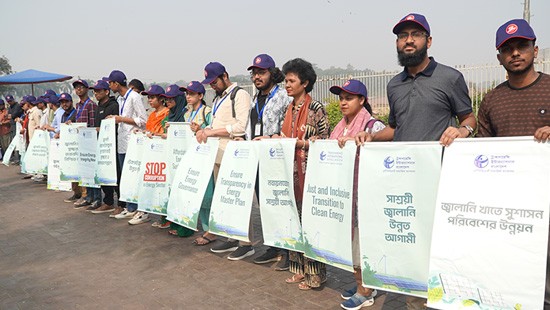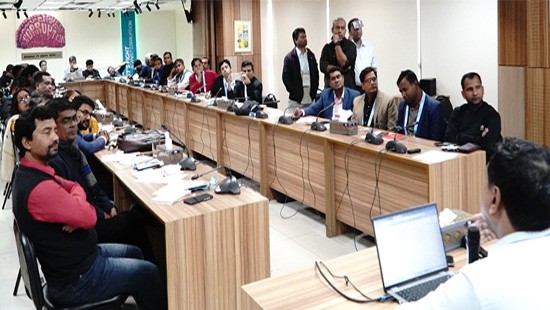Published: 30 December 2020

Transparency International Bangladesh (TIB)’s recent study finds that lack of “effective” oversight and monitoring of activities at all levels and lack of accountability contributes to the institutionalisation of forest sector-centric corruption.
The study also identifies a lack of effective measures in preventing forest damage through inconsistent deforestation by ‘aggressive’ tactics, including expansion of forest-based revenue and income-generating activities, giving less priority to forest conservation activities and traditional forest management.
In addition, the study also finds a lack of priority allocation, infrastructure and logistics in the implementation of the activities of the Forest Department with an apparent lack of appropriate and effective relevant initiatives.
The study titled "Forest Department: Governance Challenges and Way Forward", a follow-up of a previously conducted TIB study in 2008, was conducted between January 2019 and November 2020 and was released through a virtual press meet on December 30, 2020.
Accompanied by the study supervisor, TIB Climate Finance Governance (CFG) unit Senior Programme Manager M Zakir Hossain Khan, R&P Programme Manager Md. Rezaul Karim, CFG Deputy Programme Manager (DPM) Newazul Mowla, and R&P DPM Mohammad Nure Alam presented the findings at the event.

The qualitative study covered all four types of forest and 60 forest offices for the data collection, including the department’s Head office. Aimed at exploring the governance challenges in the department’, the study analysed the collected data based on six indicators: capacity, transparency, accountability, integrity, participation and irregularities/corruption.
The study observed that the effective implementation of the Forest Act (1926) lacks the necessary rules, action plans, and practical initiatives to reform the 93-year-old Forest Act radically. Recent examples of the department's discriminatory exercise of power are in the name of the forcible eviction of forest-dependent indigenous peoples in violation of traditional land rights, in violation of forest laws and unilaterally protected forests, wildlife sanctuaries, national parks and declarations.
The study also noticed the passive role of the forest department in the adoption of large-scale projects, including coal-based power projects around the protected forest lands, illegal occupation of forest lands, and allocation of forest lands for various development works and prevention of permanent damage.
According to the study, until December 2019, only 6 thousand 692 acres (3%) of forest land had been recovered by the department in the last five years. However, a total of 2 lakh 8 thousand 453 acres of forest land has been forcibly seized. The most effective improvement of forest management with the help of remote sensing and modern technology is being hampered due to a class of dishonest department officials, thus making the department’s activities particularly questionable.
Also, during the implementation of forest projects, there are allegations of embezzlement of up to 61 per cent by the DFO, Range and a section of BIT officials during the distribution of cash at the field level. There are allegations of illicit money transactions from BDT 50,000 to BDT 3 crore for the appointment, posting, and transfer of various posts, including the portion of Chief Forest Conservator, at different times.
Pointing to the research findings, Dr. Zaman said, “The department has not been able to effectively and practically exercise both the powers and capabilities vested in it to protect forest lands and to ensure the traditional rights of indigenous peoples living in forests, and we have noticed many deviations there including failure to prevent the encroachment of forest lands and how the forest lands have been allotted for the construction of civilian and military installations. Through deforestation, eviction and illegal allocation of forest land or its use by a section of Forest Department officials, there has been a kind of institutionalisation of collusion; where in reality, the protector is playing the role of predator.”
Speaking about the coastal area, Dr. Zaman said the deforestation in the coastal region would affect the people living in the area, and many of them have already become internal refugees.
In conclusion, Dr. Zaman called upon the Forest Department and other stakeholders to consider TIB’s 15 point recommendations to prevent the damage of forest and suggested a radical change of the department while enacting a new law.
TIB placed 15 points recommendations that included permission of the Forest Department before deforestation and use of forest land in case of urgent need of the state with completion of defect-free EIA and environment-friendly forestation of the same amount of land to formulate ‘Compensatory Forestry Rules’; ensure changes and reform of the forest law determining the traditional land rights of the forest-dependent indigenous peoples, and stop the collection of revenue and profit-making initiatives with banning the commercialisation of natural forests.
Details of the study can be found here.






